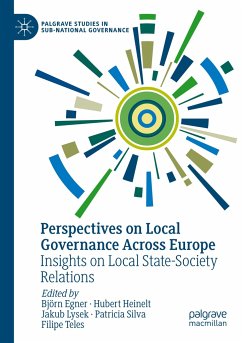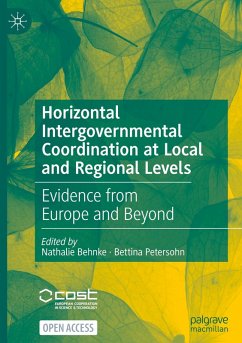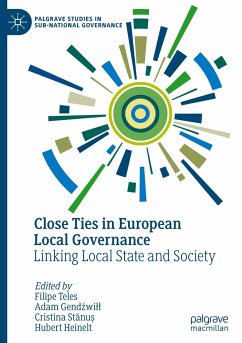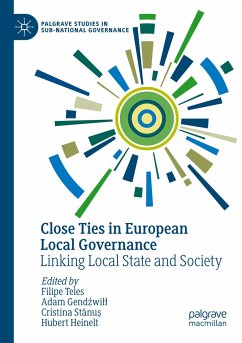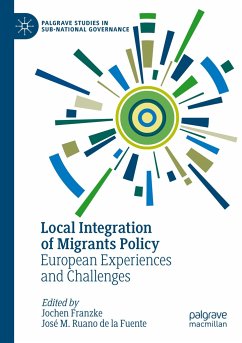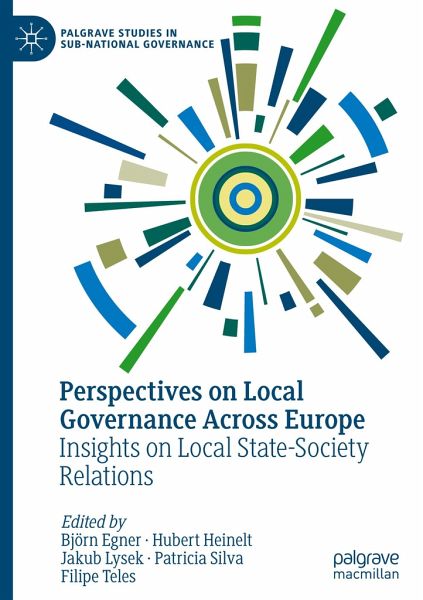
Perspectives on Local Governance Across Europe
Insights on Local State-Society Relations
Herausgegeben: Egner, Björn; Heinelt, Hubert; Lysek, Jakub; Silva, Patricia; Teles, Filipe

PAYBACK Punkte
49 °P sammeln!
This book focuses on local state-society relations, understood as institutionalised relations between local municipalities across Europe and individual, collective or corporate societal actors. It presents a typology of local state-society relations, and applies this to characterise the most relevant institutionalised relations between local government and societal actors at the municipal level in 22 European countries. The comparative volume will clarify whether or not patterns can be detected in the makeup of different types of networks; whether or not these patterns are country-specific or ...
This book focuses on local state-society relations, understood as institutionalised relations between local municipalities across Europe and individual, collective or corporate societal actors. It presents a typology of local state-society relations, and applies this to characterise the most relevant institutionalised relations between local government and societal actors at the municipal level in 22 European countries. The comparative volume will clarify whether or not patterns can be detected in the makeup of different types of networks; whether or not these patterns are country-specific or policy-specific; and why cases exist which are so distinct that they are not subsumable under a certain pattern. Taken together, this book will go beyond national typologies to emphasise the role of agency and innovation in particular policy sectors, providing a major contribution in the study of the local governance of Europe. It will appeal to scholars and students of local governance, public administration, urban planning and European studies.





